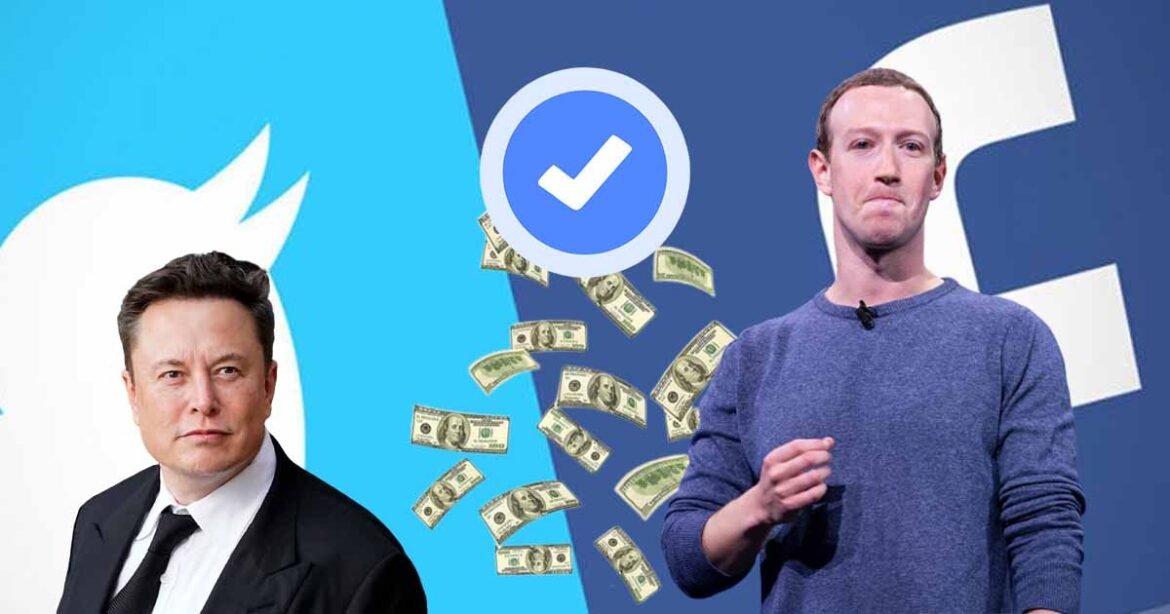Meta Platforms have officially announced plans to roll out a membership service for the company’s social media empire, and has quietly deleted the statement proclaiming that the site was “free and always will be.”
As rivals like Reddit, Snapchat, Twitter, and Discord have already introduced paid subscription plans, Meta is simply following their footsteps by launching the same. Reports say that Meta will soon let users verify their accounts in exchange for a subscription plan.
You can also read: Twitter under spotlight again in Bangladesh
The service will be tested first in Australia and New Zealand. However, critics highlighted serious worries about the manner Meta structured its new product, which would cost between $11.99 and $14.99.
What does subscription announcement say?
CEO of Meta Mark Zuckerberg revealed that the social media company would soon introduce Meta Verified (a paid subscription) on both Facebook and Instagram. At $11.99 per month on web browsers and $14.99 per month on iOS, users will be given a blue badge with “extra impersonation protection”, access to customer support and higher visibility.

A Meta blog went on to explain the operation of the monthly subscription service. To authenticate their accounts, users will present a government-issued ID and receive a validated badge. Meta will then initiate proactive monitoring to block impostor accounts and provide further account support.
Privacy threat to users?
The requirement that Meta Verified users disclose a government ID could pose privacy and security problems that have repeatedly been highlighted as major concerns.
According to online safety expert Kavya Pearlman, the concept of paying for protection would establish a “digital caste system” of haves and have-nots. “Safety and security features must NOT be for sale,” she tweeted, proposing that “dude bro CEOs” should charge impersonators instead of customers who already pay with personal information.
The Real Facebook Oversight Board, a lobbying organization that is extremely critical of Meta, tweeted: “Now Facebook wants you to fund the harmful model that fuels its whole business.”
Is Meta following Twitter?
The new Meta service has been compared to Twitter Blue, which also charges users for a blue checkmark and additional services.

Sinan Aral, a professor at the Massachusetts Institute of Technology (MIT) who performed a two-year experiment analyzing the impact of account labeling on online behavior, expressed other concerns. According to his research, “identity cues” such as Twitter Blue or Meta Verified may result in more “knee-jerk” reactions, a separation between “in groups and out groups,” and a greater emphasis on personalities over information.
According to financial analysts, the new models being attempted by social media businesses will not come close to generating the tens of billions of dollars in advertising revenue that companies like Meta generate.
“We don’t expect the new account verification service to surpass more than one to two percent of total revenue over the next 18 months,” said Angelo Zino of CFRA research. He predicted that Meta would keep looking for new ways to monetize its two billion users because of competition from companies like Netflix.
Is the subscription plan ‘Risky’ for Meta?
Meta CEO Mark Zuckerberg was mocked in online comments and memes for allegedly copying Elon Musk’s ideas. Musk replied “inevitable” to one such message.
Zuckerberg will be expecting for a smoother ride than Musk experienced when he launched Twitter Blue, only to recall it when the platform was inundated with imitation accounts. Matt Navarra, a social media expert, pointed out that Instagram had disclosed the change prior to Zuckerberg. He suggested that the launch was “a bit unplanned and last minute.” “
“For most Meta users, whether on Facebook or Insta, this new offer is likely to be greeted with a shrug of indifference,” said Susannah Streeter of Hargreaves Lansdown. She stated that small firms and high-profile individuals could be enticed to pay to defend themselves against hackers or impersonators or to increase their prominence.
However, Dan Ives of Wedbush securities termed Meta’s action “risky.” “There could be clear backlash from consumers that will never pay a dime for Facebook or Instagram and this move could push them out the door,” he said.
Now, it is just a matter of time to witness how the new “subscription plan” of Meta will affect its worldwide users!


